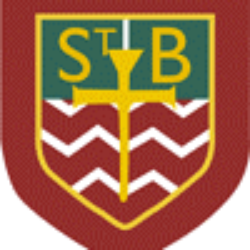Good morning everyone. It was lovely to see some of your wee faces visiting the Blessed Sacrament in the grounds of the Church on Sunday. I have attached a link for you to watch the marking of Corpus Christi, Father Campbell has been very busy this weekend.
Today’s lesson is about St Anthony of Padua.
Saturday (13th June) was the feast of St Anthony of Padua. Usually we would talk about him and learn about him if his feast day had fallen on a school day, therefore we will learn about him today because he is a very popular and beloved saint. Do you know why?
Yes, Saint Anthony is known as the saint you pray to if you have lost something. He is one of my favourite saints because he is my gran’s favourite and he has really helped her in the past. One day, my gran lost her favourite crucifix necklace, she was very, very upset and she prayed every day for almost two weeks. One day when she went back in the drawer to check once more, it was there! Just sitting where she had checked so many times! She was so very happy that she has continued to include St Anthony in her daily prayers ever since. For, as she explained to me, it’s okay to pray to St Anthony to ask for help but you must also remember to pray to him and thank him.
The Story of St Anthony
Anthony’s name was Fernando Martins. He was born in Portugal in 1195 to a wealthy family, but he wanted to become a priest and chose to live a life of poverty. After his ordination, the plan was for Anthony to travel to Morocco to help spread the Catholic faith. While there, he became very sick, therefore his superiors decided to send him back to Portugal. On the way home, a storm came and blew his ship off course. Instead of landing back in Portugal they landed in Sicily, not far from Italy. They then travelled to Tuscany which is in the middle of Italy. Being ill and weak, Anthony’s superiors decided to have him stay with some local priests in the hope that he would get better. He spent a long time there praying and studying.
One day, Anthony was asked to give a homily at mass, he had not prepared for this and was nervous as he hadn’t done it before. His superior told him, “Just say what the Holy Spirit wants you to.” (In other words, don’t prepare anything and God will give you the words to say.) His homily was so well received that he was from then on asked to preach to various groups. He became known as a great preacher. Anthony had the ability to teach to everyone, regardless if they were young or old, educated or not.
So why is he known as the saint to pray to for lost items? Well, Anthony had a special prayer book which he used in all his teachings. It had lots of notes and special prayers that he used during his homilies, but one day it was stolen. Anthony prayed and prayed for its return and eventually the thief returned it. But not only did he give it back, he began to worship and followed the teachings of Anthony.
Questions:
- Have you ever lost something and prayed hard for it’s return? What was it and why was it so special to you?
- What do you think makes a good preacher? (Qualities such as, friendly etc)
Task
Apart from school life, can you name someone in your family or circle of family friends who is a good teacher? It doesn’t have to be educational, it can be about anything, such as a grandfather who inspires you with stories or work, or a family friend who talks to groups of people about something important. Write a little about them. Who are they and what skills do they have that make them a good teacher?
For me, like I mentioned before, my gran is a good teacher. She has taught me many things about my religion over the years. She is interesting to listen to because she is a great story teller and uses her voice and facial expressions very well. She is also very funny and has the ability to laugh at herself when she makes mistakes, which is important!
I hope you all have a lovely day and tonight when you are saying your prayers, remember to include St Anthony.
St Anthony, pray for us.
Take care
Mrs Graham 🙂
.




